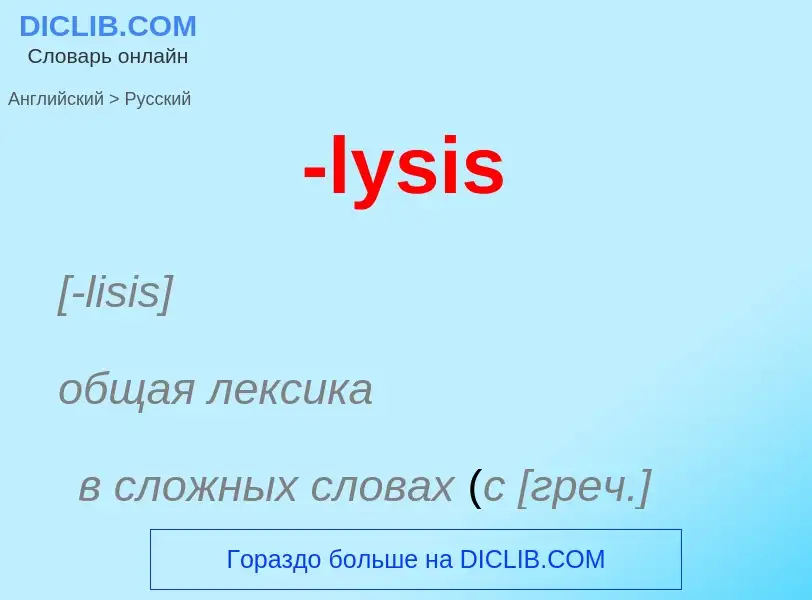Vertaling en analyse van woorden door kunstmatige intelligentie ChatGPT
Op deze pagina kunt u een gedetailleerde analyse krijgen van een woord of zin, geproduceerd met behulp van de beste kunstmatige intelligentietechnologie tot nu toe:
- hoe het woord wordt gebruikt
- gebruiksfrequentie
- het wordt vaker gebruikt in mondelinge of schriftelijke toespraken
- opties voor woordvertaling
- Gebruiksvoorbeelden (meerdere zinnen met vertaling)
- etymologie
-lysis - vertaling naar russisch
[-lisis]
общая лексика
в сложных словах (с [греч.] корнями) имеет значение распад
разложение
['laisis]
общая лексика
лизис
распад
существительное
медицина
лизис
Definitie
Wikipedia
Lysis of Taras (; Greek: Λῦσις; fl. c. 5th-century BC) was a Greek philosopher. His life is obscure. He was said to have been a friend and disciple of Pythagoras. After the persecution of the Pythagoreans at Croton and Metapontum he escaped and went to Thebes, where he became the teacher of Epaminondas, by whom he was held in the highest esteem. There are, however, serious chronological difficulties with his being both a disciple of Pythagoras and the teacher of Epaminondas. Some of the commentators and doxographers have failed to distinguish between the two different anti-pythagorean revolutions: the first one around ~500, when Pythagoras himself died, and the second one fifty years later. This could clarify the source of the chronological incoherence.
Lysis was credited as the actual author of a work which was attributed to Pythagoras himself. Diogenes Laërtius quotes from an undoubtedly spurious letter from Lysis to Hippasus as an authority for some statements concerning Damo.

